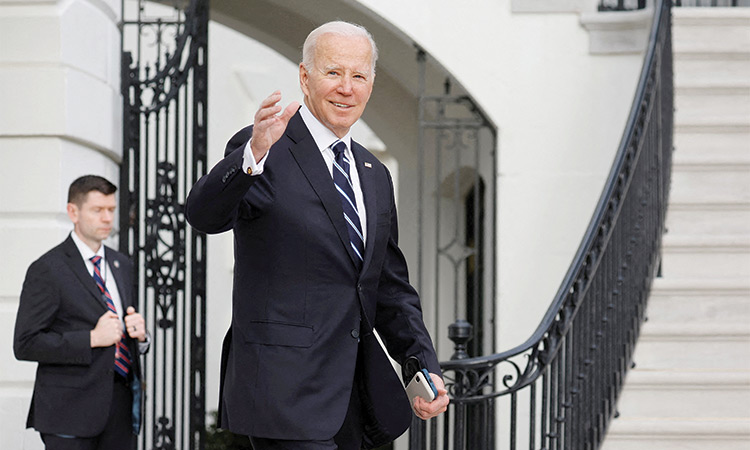Polls don’t tell you Michigan’s rebound began with Biden

Representational image.
Matthew A. Winkler, Tribune News Service
If the presidential election were held today, Michigan, whose population of 10 million people makes it the 10th largest US state, would choose Donald Trump over President Joe Biden by the slimmest of margins, according to the average of current polls. And yet, given that Trump would be the definitive loser in a hypothetical presidential contest with Democratic Governor Gretchen Whitmer, it bodes well for Biden come Nov. 5th because it shows voters acknowledge the rebound from when the Great Lakes State suffered the US’s third-worst economy under the Trump administration. Michigan’s outlook is especially relevant because Americans are persistently reminded by the media that so much depends on the seven so-called swing states of Arizona, Georgia, Michigan, Nevada, North Carolina, Pennsylvania and Wisconsin that will determine whether Biden or Trump is re-elected. The public opinion poll-driven media narrative of American unhappiness in these key states is belied by the job market. In Michigan, the number of manufacturing workers has increased 5% since the end of 2020, almost matching the national average.
Never mind that the polls are breathlessly reported without mentioning that the 45th president is a twice-impeached election denier facing four criminal indictments in four different cities after already being found liable for sexual assault, instigating the Jan. 6 insurrection at the US Capitol and presiding over the greatest loss of life from the COVID-19 pandemic of any country when he occupied the Oval Office. That’s just too much of a parenthetical clause for most news organizations to be bothered with adding as context and perspective in their articles on the polls. They also fail to point out that the performance of Michigan’s economy surpassed neighboring Indiana and Ohio while reversing the 4% decline under Trump when the US overall showed no change, according to the Federal Reserve Bank of Philadelphia’s US Coincident Indexes. These metrics track each state based on nonfarm payroll employment, average hours worked in manufacturing by production workers, the unemployment rate and wage and salary disbursements deflated by the Consumer Price Index.
These indexes show that even when the sudden spurt of inflation caused by the pandemic is included, Michiganders are benefiting from a higher standard of living under Biden than his predecessor. The Michigan index gained 13% the past three years after declining 4% between 2017 and 2020 when it was No. 6 from the bottom as the US rose 4%. “Michigan residents made a full recovery from the pandemic last July” Jacob Burton, Gabriel Ehrlich and Michael McWilliams wrote in an economic assessment of the state published in February by the University of Michigan, Ann Arbor. “We expect Michigan’s payroll job count to recover to its pre-pandemic level early this year.” On top of that, “inflation has been slowing down as well, allowing growing incomes to translate into rising standards of living for state residents,” and “the state’s recent resilience in the face of a challenging environment has been encouraging to see,” the economists conclude. Nowhere is Michigan’s recovery more evident than in the growth of three companies representing its increasingly diversified economy: American Axle & Manufacturing Holdings Inc., the Detroit-based auto parts maker; UFP Industries Inc., the Grand Rapids-based wood products manufacturer; and UWM Holdings Corp., the Pontiac-based mortgage finance company.
“Since the beginning of 2023, we’ve grown our team by about 15%,” Mat Ishbia, chief executive officer of UWM Holdings, the world’s third-largest mortgage finance company by market value with 6,700 employees, said during a Feb. 28 earnings call. “The strength of our business gives us the ability to hire and invest in our people and we look forward to even more growth in 2024.” At American Axle, which had 19,000 employees at the end of 2023, business is so robust “we’re paying referral bonuses” and “retention bonuses,” CEO David Dauch told analysts in August. “One of our goals is to develop the newly hired graduates to become AAM’s future business leaders who will not only drive future profitability and growth for the company, but also a strong sense for community and social responsibility.”







